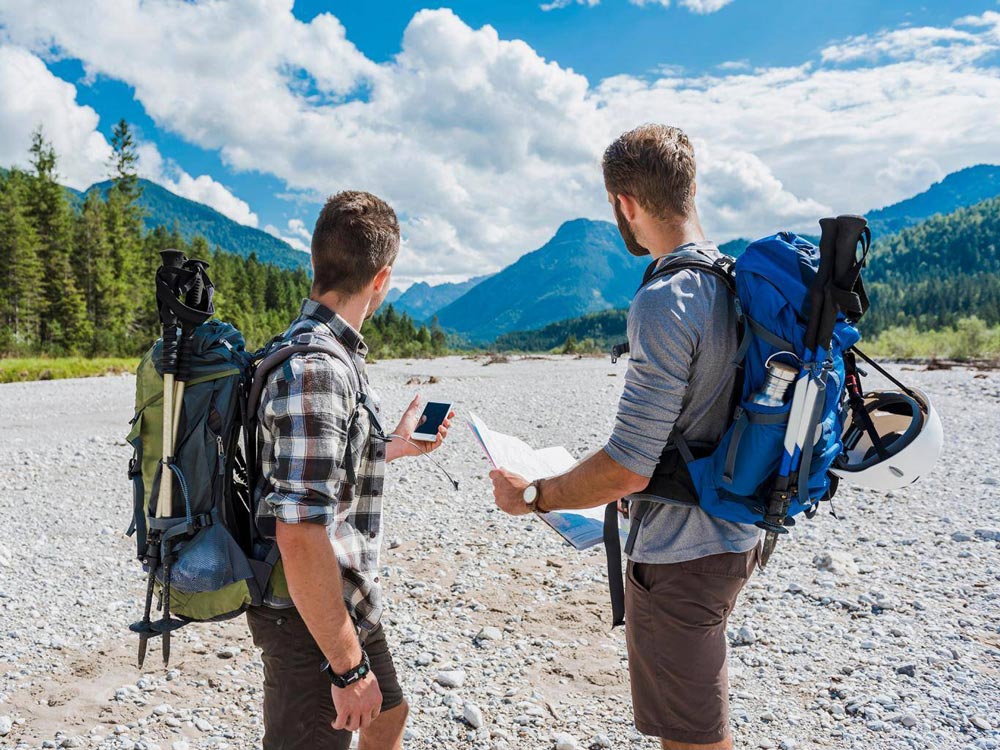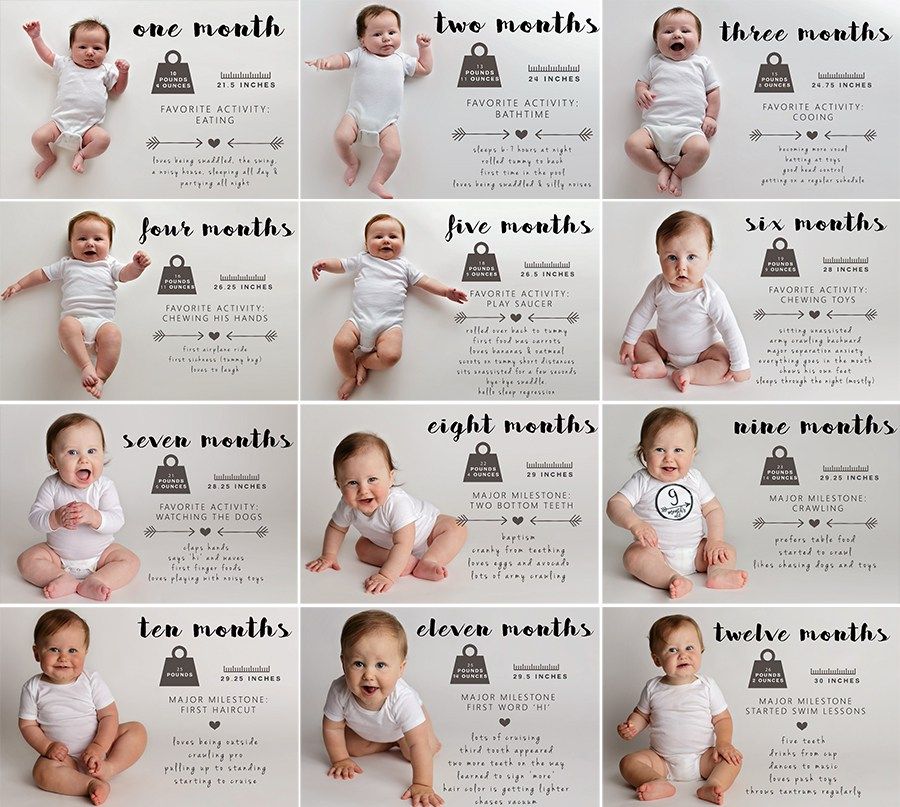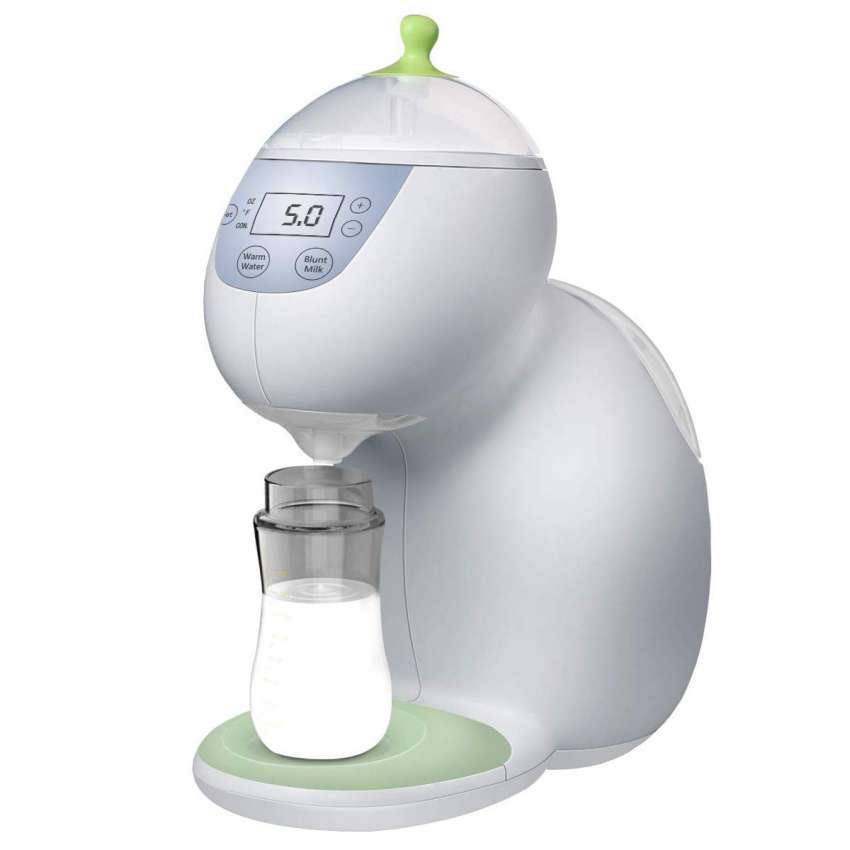Travelling in second trimester
Traveling While Pregnant or Breastfeeding
Special considerations for traveling while pregnant
Traveling during pregnancy is normal and a lot of women do it. But it's important to think about potential problems that could come up during international travel. Also think about how you would get quality health care in the countries you are visiting. Get all of the vaccines you need before becoming pregnant instead of waiting to get them during pregnancy.
The American College of Obstetricians and Gynecologists says the safest time for a woman to travel is in the second trimester of her pregnancy, from 14 to 28 weeks. This is the time when you will feel your best. You are also at the lowest risk for spontaneous abortion or premature labor. During the third trimester (25 to 40 weeks), many healthcare providers and midwives advise staying within a 300-mile radius of home because of potential problems such as high blood pressure, phlebitis, and false or preterm labor. Generally, women are not allowed to travel by air after 36 weeks for domestic travel, and after 28 to 35 weeks for international travel. The decision on whether to travel and how far to travel at any time during pregnancy should be a joint decision between you and your healthcare provider or midwife.
According to the CDC, pregnant women with the following conditions may be advised against traveling to countries that require pre-travel vaccines. This list may be incomplete. So discuss your health history with your provider or midwife before planning travel:
History of miscarriage
Incompetent cervix
History of ectopic pregnancy
History of premature labor or premature rupture of membranes
History of or current placental abnormalities
Threatened miscarriage or vaginal bleeding during current pregnancy
Multiple fetuses in current pregnancy
History of toxemia, high blood pressure, or diabetes with any pregnancy
History of infertility or trouble getting pregnant
Pregnancy for the first time over the age of 35 years
Heart valve disease or congestive heart failure
History of blood clots
Severe anemia
Chronic organ system problems that need to be treated
You may also be advised against traveling to places that may have hazards. The list below may be incomplete. Talk about your travel plans with your healthcare provider or midwife before planning a trip.
The list below may be incomplete. Talk about your travel plans with your healthcare provider or midwife before planning a trip.
Places with high altitudes
Places that have outbreaks of life-threatening food- or insect-borne infections
Places where malaria is common
Places where live-virus vaccines are needed or recommended
Healthy tips for traveling while pregnant
Here are tips for traveling while pregnant:
Try to plan ahead for any problems or emergencies that could come up before you travel. Check that your health insurance is valid while you are abroad. Also check to see whether the plan will cover a newborn, should you deliver while away. You may want to think about getting a supplemental travel and medical evacuation insurance.
Research medical facilities in your destination. Women in the last trimester of pregnancy should look for places that can manage complications of pregnancy, toxemia, and cesarean sections.

If you will need prenatal care while you are abroad, arrange for this before you leave. Talk with your healthcare provider or midwife to figure out the best way to handle this.
Know your blood type and check that blood is screened for HIV and hepatitis B in the areas you will be visiting.
Check that safe food and beverages such as bottled water and pasteurized milk are available at your destinations.
If flying, ask for an aisle seat at the bulkhead. This gives you the most space and comfort. If morning sickness is a problem, try to arrange travel during a time of day when you generally feel well. Seats over the wing in the midplane region will give you the smoothest ride.
Try to walk every half-hour during a smooth flight. Flex and extend your ankles often to prevent blood clots in the veins (thrombophlebitis).
Fasten your seat belt at the pelvis level, below your hips.
Drink plenty of fluids to stay hydrated.
 Aircraft cabins have low humidity.
Aircraft cabins have low humidity.Try to rest as much as possible while away. Exercise and activity during pregnancy are important. But try not to overdo it.
Special considerations for traveling while breastfeeding
Breastfeeding gives babies the most nutritional start in life. It also gives them vital protection against certain infections. But traveling internationally while nursing can be challenging.
If you are breastfeeding only, you don't have to worry about sterilizing bottles or having clean water. You may get vaccines to protect against disease, depending on where you are traveling. But diseases such as yellow fever, measles, and meningococcal meningitis may be a threat to infants who can't be vaccinated at birth. Discuss this with both your healthcare provider or midwife and your infant's care giver before you travel.
If you are feeding your baby formula, it's best to use powdered formula made with boiled water. You may also want to carry a supply of prepared infant formula in cans or ready-to-feed bottles for emergencies.
Breastfeeding helps lower the chance of your baby getting traveler's diarrhea. If you get traveler's diarrhea, drink more fluids, and continue to nurse your baby.
Watch your eating and sleeping patterns, as well as your stress levels. This will affect your milk output. Drink more fluids. Stay away from alcohol and caffeine, as well as exposure to smoke.
Travel during pregnancy
Topics
In This Topic
Being pregnant doesn’t mean you have to be stuck at home. If you’re going on a business trip or taking a vacation, there are ways you can stay healthy and safe when traveling during pregnancy.
Is it safe to travel when you’re pregnant?
If you have a healthy pregnancy, it’s usually safe to travel. But talk to your health care provider before planning any trip.
If you have a health condition, such as heart disease, or if you’ve had pregnancy complications, such as gestational diabetes, your provider may suggest you limit travel.
Even if your pregnancy is healthy, tell your provider about your travel plans. You may need to rearrange your prenatal care visits so you don’t miss any while you’re away.
When is the best time to travel during pregnancy?
The best time to travel depends on how you feel. Many pregnant women like to travel during the second trimester. At this time, you may not have as much morning sickness or be as tired as you were at the beginning of your pregnancy. And while your belly’s getting bigger, it’s still comfortable for you to move around. As you get closer to your due date, walking, sitting and even sleeping can be very uncomfortable.
During the second trimester, you’re also less likely to have a pregnancy emergency, such as miscarriage or preterm labor. Miscarriage is when a baby dies in the womb before 20 weeks of pregnancy. Preterm labor is labor that happens too early, before 37 weeks of pregnancy.
Preterm labor is labor that happens too early, before 37 weeks of pregnancy.
How can you get ready for your trip?
Plan ahead and follow these tips to stay safe when traveling during pregnancy:
- Ask your airline if they have a cut-off time for traveling during pregnancy. You can fly on most airlines up to 36 weeks of pregnancy. But if you’re flying out of the country, the cut-off time may be earlier.
- Check to see what medical care your health insurance covers. Health insurance helps you pay for medical care. Most insurance plans cover emergency medical care no matter where you are. But you need to know what your plan means by “emergency” to know exactly what it will pay for.
- Think about buying travel insurance. This is insurance you buy in addition to your regular health insurance. It covers you for medical care while traveling in another country. You also can buy travel insurance that refunds some of your costs if you have to cancel your trip.
 Visit USA.gov to learn more about the different kinds of travel insurance.
Visit USA.gov to learn more about the different kinds of travel insurance. - Learn about medical care available where you’re headed. Your provider may be able to recommend a provider in the area where you’re going. If you’re traveling in the United States, you can find a provider through the American Medical Association. If you’re traveling overseas, find a provider through the International Association for Medical Assistance to Travelers’ database.
- Pack a copy of your medical records, your provider’s phone number, your prenatal vitamins and any medicine you need. Keep these things in your purse, a carry-on or a bag you plan to have with you at all times. This way, they’re always handy.
- Visit the Centers for Disease Control and Prevention (CDC) for information about vaccinations, travel alerts, managing health conditions during your trip and other ways you can stay healthy during travel.
- If you can, travel with someone.
 Don’t travel alone if you don’t have to.
Don’t travel alone if you don’t have to.
Is it safe to travel to places where Zika is spreading if you're pregnant?
Zika virus (also called Zika) can cause illness that lasts several days to a week. It usually spreads to people through mosquito bites. But if you get infected with Zika during pregnancy, you can pass the virus to your baby. Zika infection during pregnancy can cause serious problems for your baby.
If you're pregnant or trying to get pregnant, don't travel to a Zika-affected area unless you absolutely have to. If you do travel, protect yourself and your family from mosquito bites. Check CDC travel alerts often for updates.
When should you seek medical care during travel?
If you have any of the following signs and symptoms during your trip, get medical help right away:
- Belly pain or cramps
- Contractions (when the muscles of your uterus get tight and then relax)
- Severe headaches
- Leg swelling or pain
- Vaginal bleeding (when blood comes out of your vagina) or you pass blood tissue or clots
- Vision problems
- Your water breaks.
 This can be in a large gush or a continuous trickle.
This can be in a large gush or a continuous trickle.
How can you stay safe when traveling by plane?
If your pregnancy is healthy, it’s usually safe to travel by plane.
Follow these tips when traveling by air:
- If you’ve had morning sickness during pregnancy, ask your provider if you can take medicine to help with nausea.
- Book an aisle seat so you don't have to climb over other passengers when you need to get up to use the restroom or walk around. Try sitting towards the front of the plane where the ride feels smoother.
- Drink plenty of water. Don’t drink carbonated drinks, such as soda. And don’t eat foods, such as beans, that may cause gas. Gas in your belly can expand at high altitudes and make you feel uncomfortable.
- Fasten your seat belt when you’re in your seat. This can help keep you from getting hurt in case of turbulence. Turbulence happens when the air around a flying plane causes a bumpy ride.

- Wear loose, comfortable clothing. Flex your ankles during the flight, and take a walk when it's safe to leave your seat. Doing these things can help your blood flow and lower your risk of deep vein thrombosis (DVT), a blood clot inside a vein. Sitting for long stretches of time during any kind of travel raises your chances of having DVT. Ask your health care provider if you should wear support stockings during your flight. They may help prevent DVT. But if you have diabetes or problems with blood circulation, you probably shouldn’t wear them.
- Tell the flight attendant if you feel sick or very uncomfortable during your flight. Contact your provider as soon as you can.
How can you stay safe when traveling by car?
If you're pregnant and traveling by car, follow these tips:
- Wear your seat belt.
- Try not to drive more than 5 to 6 hours per day. If you can, break your trip into several days with shorter drive times each day.

- During long drives, drink water, wear loose-fitting clothes and take breaks to get out of the car to walk around and stretch. And ask your provider if you should wear support stockings. Doing these things can lower your risk of DVT. Don’t turn off your car’s air bags. Airbags can keep you and your baby safe in a crash.
- Tilt your seat and move it as far as possible from the dashboard or steering wheel. If you’re driving, though, make sure you can reach the foot pedals.
- If you’re in an accident, get medical help right away.
How can you stay safe when traveling by ship?
If you’re pregnant and traveling on a ship, such as a cruise vacation, follow these tips:
- Call your cruise line to confirm that a health care provider will be on the ship at all times. Ask what medical care may be available at each port stop. Ask if your ship has passed a CDC health inspection.

- Ask your provider if you can take medicine to help prevent or treat sea sickness.
- Wash your hands often and wash any fruits and vegetables you eat during the cruise to help avoid getting infections.
How can you stay safe when traveling out of the country?
If your pregnancy is healthy, it may be safe for you to travel abroad. But check with your provider before you make plans. If you have certain pregnancy complications, such as incompetent cervix (when the cervix opens too early), or if you’re pregnant with twins, triplets or more, your provider may recommend that you not travel out of the country.
If you’re thinking about traveling out of the country, follow these tips:
- Talk to your provider about your travel plans. Ask about pregnancy complications and if it’s safe to travel to the country you’re planning to visit. Ask your provider about vaccinations you need before your trip and about taking medicine with you.

- Find out what your health insurance covers when traveling outside the country. And think about buying travel insurance.
- Find a provider or a medical center in the country you’re planning to visit before you leave home. Look for a center where providers can manage pregnancy complications, perform emergency cesarean sections (c-sections) and care for premature babies. The International Association for Medical Assistance can help find this kind of information.
- Make sure the country you’re planning to visit regularly screens stored blood for HIV, hepatitis B and hepatitis C. This is very important if you need a blood transfusion or if your baby is at risk of Rh-disease. Visit the U. S. Department of State website for information on blood screening by country.
- Take a copy of your medical records with you. Know what your blood type is.
- Register with the American embassy or consulate once you arrive.
 Staff there can help if you need to get out of the country during an emergency.
Staff there can help if you need to get out of the country during an emergency. - If you don’t speak the local language, take a dictionary.
Last reviewed: April, 2016
') document.write('
Nutrition, weight & fitness
') document.write('') }
') document.write('') }
Traveling while pregnant | Agu-Baby.by
It is impossible to measure the value of what travel can give a person. A trip to another country is the most exciting and fastest way to change yourself for the better. The opportunity to change the situation, get away from the usual stress, get new experiences, recharge with a positive attitude - all this will benefit the expectant mother.
After all, pregnancy is not a disease, and in its normal course, travel plans should not be canceled, you just need to take into account some of the nuances of the new situation and prepare more carefully.
When is the best time to travel while pregnant? What should be considered when preparing for a trip? What places to stay to choose and how to get there? We have identified three main aspects that you need to pay attention to when preparing for a trip.
1. WHEN
Regardless of the duration of your pregnancy, preparation for the trip should begin with a consultation with an obstetrician-gynecologist. Only a doctor will be able to objectively assess your condition and, based on the survey, examination and test results, make recommendations. The specialist must know where, for how long, by what transport you plan to go, in order to draw up an individual list of precautions.
Everyone's pregnancy is different, so it's best to rely on your own feelings.
I trimester (up to 13 weeks) - the main organs and systems of the fetus begin to form, as a result of which the female body is experiencing a large-scale hormonal restructuring. External manifestations - toxicosis, nausea, dizziness, weakness. It is unlikely that you will be able to enjoy the trip to the fullest if all these manifestations are pronounced in you. According to statistics, the main danger of the first trimester is a high probability of miscarriage, so it is better to postpone long trips for now. In addition, now the body is weakened and more susceptible to viral infections, it is easy to get infected on a train or plane.
External manifestations - toxicosis, nausea, dizziness, weakness. It is unlikely that you will be able to enjoy the trip to the fullest if all these manifestations are pronounced in you. According to statistics, the main danger of the first trimester is a high probability of miscarriage, so it is better to postpone long trips for now. In addition, now the body is weakened and more susceptible to viral infections, it is easy to get infected on a train or plane.
II trimester (14-27 weeks) is the most favorable period for travel. Toxicosis and other troubles are already in the past, and your body has adapted to the changes. The stomach has not yet increased and allows you to actively move, in addition, many note a surge of strength and vigor here. Do a scheduled ultrasound - and on the road!
III trimester (28 - 40 weeks) - if everything goes well, there is strength and the stomach does not interfere with movement, then plan your vacation boldly. But remember, starting from the seventh month, it is better not to travel long distances, as there is a possibility of premature birth. And after 36 weeks, the pregnancy is considered full-term. Therefore, it will be better for everyone if the maternity hospital is within reach.
But remember, starting from the seventh month, it is better not to travel long distances, as there is a possibility of premature birth. And after 36 weeks, the pregnancy is considered full-term. Therefore, it will be better for everyone if the maternity hospital is within reach.
2. AS
Using any vehicle has its pros and cons. It is important to know about them in order to make your trip as comfortable as possible.
- Aircraft
Pros: is the fastest mode of transport, and sometimes the only option for long trips across the ocean. A relatively comfortable cabin, the availability of drinking water, snacks and a toilet (sometimes this is the most important thing).
Cons: a lot of time can be lost at the airport when checking in or waiting for luggage, the inability to interrupt the flight in case of emergency. Also, some airlines may require a certificate from a doctor, which will indicate the gestational age. And they can refuse to register if it exceeds 34 weeks.
- Train
Pros: the greatest comfort on the road: you can walk, sit, lie down, do simple exercises. The toilet is still available. The main thing is to choose the lower shelf and, if possible, a compartment.
Cons: questionable sanitary conditions (be sure to use sanitary napkins and germicidal gel), large crowds in a poorly ventilated area, long travel times and difficulties in providing a healthy diet.
- Car
Pros: you can always stop, go out to stretch and get some air. You can plan your own route and easily adjust it based on the situation. And in the car you often travel with loved ones, which is nice in itself.
Tip: buy yourself a special seat belt for pregnant women that will not squeeze your stomach, and also take a roller or a pillow under your back and head - this way they will be less tense and hurt.
Cons: duration of the trip, muscle pain from a long stay in a sitting position, strong shaking on bad roads.
- Bus
In principle, we recommend that you refuse to travel by bus, since stops on the road are quite rare, you will not find a convenient toilet in the cabin, and walking around the cabin will be inconvenient and unsafe.
3. WHERE
Here it is important to adequately assess your condition and understand what loads will be within your power, and what exactly can harm. The mom-to-be's vacation routine may be a bit like a kindergarten schedule: quiet games, leisurely walks, five meals a day, and even daytime naps! A great activity for a future mother is swimming in clean sea water. And it is better to refuse extreme activities for this time.
Try to travel to countries with "close" to your time zone, so as not to expose the body to unnecessary stress. It is advisable to avoid places with a very hot or vice versa too cold climate. You should not plan long and tiring flights with a large number of transfers. Also under the ban will be some countries in Africa, Asia and South America, where you need to be vaccinated before the visit.
What not to do:
- stay in the open sun for a long time, especially during active daytime radiation;
- overheat and overcool;
- experiment with new products;
- drink raw water.
We want to once again draw your attention to the fact that every pregnancy proceeds extremely individually. Therefore, it is better not to trust the experience of your friends, but rely solely on your own state and feelings. When traveling, first of all, you need to relax, have fun and gain strength. And this is possible only with a careful attitude towards yourself and the baby.
tips for pregnant women – Moscow 24, 02/01/2020
February 01, 2020, 00:00
Society
The most ordinary trip can become a real test and stressful situation for a pregnant woman. Sometimes it may even seem that it is not worth leaving the house at all. How to prepare for a vacation and not become a hostage to anxiety, in the column of the journalist and mother of four children Anna Kudryavskaya-Panina.
Photo: depositphotos/ cunaplus
"Doctor, my husband and I are going on vacation for the holidays, can I?" - I can argue that doctors hear this or a similar question from almost every pregnant woman. And if the pregnancy proceeds without complications, then a competent doctor will answer: "It is not possible, but necessary!" This is exactly what the obstetrician-gynecologist answered me, with whom I conducted my third pregnancy. And it seemed that I was already a shot sparrow and knew a lot and, in general, not the most disturbing, but still asked about the vacation and asked again about the plane.
If you read some of the women's forums, you can believe that the safest pregnancy is to spend in bed. Horror stories about the fact that you can’t fly, ride a train or drive, experts seem to be tired of debunking. In fact, everything is simple: you can walk, ride, fly if there are no conditions threatening pregnancy and if the pregnant woman herself wants / needs it.
Pregnancy is, of course, not a disease, but a special condition. And that is why it makes sense to prepare for any trip more consciously in order to have everything you need on hand just in case.
But this does not mean that if you want to go somewhere at a different time, you need to prohibit yourself from doing so. You just need to take into account some features of your pregnancy and your condition at the time of travel.
If you do not leave the country, then in general everything is quite simple and differs little from rest in the usual state. Insurance is not needed, doctors and medicines are available if necessary. You need to think about what will give you additional security and comfort. In the first trimester, due to severe toxicosis, I did not risk going somewhere far, but I really wanted to change the background, and we went to Kolomna for a couple of days. For nausea, I always had mints and a bottle of Coca-Cola on hand. The drink, which I almost never drink in ordinary life, during the first weeks of pregnancy became just a sip of salvation. A proven fact, "harmful" cola helps with intestinal infections and perfectly relieves nausea in pregnant women. And if you are a supporter of a healthy lifestyle and are tormented by the choice of whether to drink or not drink, it makes sense to think in the direction that a couple of sips of cola will certainly not do more harm to your child and you than incessant nausea, intoxication and a state close to collapse.
A proven fact, "harmful" cola helps with intestinal infections and perfectly relieves nausea in pregnant women. And if you are a supporter of a healthy lifestyle and are tormented by the choice of whether to drink or not drink, it makes sense to think in the direction that a couple of sips of cola will certainly not do more harm to your child and you than incessant nausea, intoxication and a state close to collapse.
Photo: depositphotos/ VitalikRadko
During each pregnancy, I felt that this world smells terribly strongly, I would even say it stinks, so I always carried something pleasantly smelling with me in order to smell this wonderful stinking world in time, anything: a handkerchief sprinkled with your favorite perfume, a bag of lavender, or even a mint leaf.
For flights, I had compression stockings (this, of course, is not necessary, but desirable, it is not only good for blood vessels, but it is really easier for the legs to endure the flight), but in the heat it was simply unbearable - to pack the legs in dense synthetic fabric, and I got by with golf. Doctors, of course, insist on stockings, but you must admit that stockings are definitely better than nothing.
Doctors, of course, insist on stockings, but you must admit that stockings are definitely better than nothing.
The story with airplanes is that different airlines set different rules for flying pregnant women. And this must be taken into account on the shore, that is, when buying a ticket. Usually, up to 28 weeks, pregnant women can safely travel by this type of transport, but in any case, find the corresponding rule on the airline's website, because it is in your interests so that your vacation is not spoiled and does not end at the airport.
If it's not in the rules, but you're still worried, play it safe and take it when you come for a routine checkup. In both recent pregnancies, my husband and I (and in the second case with a small child) flew between 24 and 28 weeks. We had no problems either in the first or in the second case. But in the first one I took a certificate (requirement of the carrier), in the second I flew without it. Nothing special, except for the increased attention of the airport staff and flight attendants on board (and my stomach was quite noticeable), I can’t remember about these “pregnant” flights.
Pregnant women can swim in the sea. Usually, they also ask permission from the doctor before the vacation. Moreover, for a decent period of time, sea water is an excellent way to unload your back and legs, and swimming is the most useful load for all muscle groups.
I remember how before a trip to Montenegro at the 25th week of pregnancy, I put medicines in the first aid kit, and then took it out, put it again and took it out again. On the one hand, not everything is possible for pregnant women. On the other hand, pregnant women also get sick, like all people. And in the case of a trip abroad, the situation when you can only buy panadol in a pharmacy without a prescription can be very unnerving. And pregnant women know how to get nervous qualitatively and with a huge force that affects everything and everyone around. I consider this option of preparing for a foreign vacation to be optimal: medical insurance for pregnant women and an optimally assembled first-aid kit (taking into account the specifics of the state and the country you are going to).
Photo: depositphotos/ golyak
Medical insurance for pregnant women is not offered by every travel insurance company. But there are such insurers. You can, of course, take out ordinary insurance, but then it will not cover any risks associated with pregnancy. Namely, you want to protect yourself from them during the trip, so it’s better to surf the Internet for a couple of extra minutes, but find an insurance option for a pregnant woman. Yes, this insurance will be more expensive than usual, and it is quite possible that you won’t be able to buy such a policy online and will have to go for it, but it seems to me that these are minimal costs with an obvious benefit - the ability not to worry.
With the first-aid kit, I did this: in addition to vitamins for pregnant women and those drugs that the doctor prescribed for me, I took with me antipyretic drugs allowed in my position in case of SARS, adsorbents in case of poisoning or intestinal infection, enzymes and a drug for heartburn, antihistamines of the latter generations, a throat spray, a saline solution for washing the nasopharynx and vasoconstrictor nasal drops for babies (which can also be used by pregnant women). In a word, I insured myself in case of minor problems, and for all the rest (God forbid, of course) - I had a guarantee of peace of mind in the form of insurance. Fortunately, I didn’t need insurance, as well as all the contents of the first-aid kit, except for vitamins, but I didn’t doubt for a second that all this was not in vain.
In a word, I insured myself in case of minor problems, and for all the rest (God forbid, of course) - I had a guarantee of peace of mind in the form of insurance. Fortunately, I didn’t need insurance, as well as all the contents of the first-aid kit, except for vitamins, but I didn’t doubt for a second that all this was not in vain.
Will you be able to easily transfer a flight with a transfer, as before, or is it better to overpay, but fly a non-stop flight? What is better in your position - an apartment or a hotel? How is it calmer and easier for you - to cook by yourself or to trust the public catering? And if earlier you simply didn’t think about something (well, for example, about the availability of public toilets at the place of stay), then now it may turn out to be more than relevant. Choose everything taking into account the changed inputs, especially in the second half of pregnancy. And then you have every chance to have a great rest, despite the fact that you are not traveling light.












